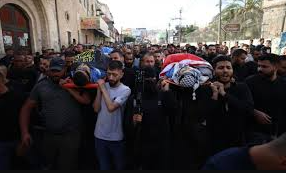
Social media platform banned temporarily after a police officer was killed in clashes, as protests spread across the kingdom.
Jordan has implemented a temporary ban on the social media platform TikTok following violent protests triggered by soaring fuel prices, which led to the tragic death of a police officer. The protests, initially sparked by truck drivers, have spread to various cities across the Middle Eastern country. On Thursday, clashes with law enforcement saw the use of tear gas, and videos of the violence quickly spread on TikTok, prompting the government to act.
The Jordanian Public Security Directorate announced on Friday that TikTok would be suspended for its failure to prevent the spread of violent content and posts that incited unrest. Authorities have not specified the duration of the ban.
The affected cities of Maan, where the officer was killed, and Karak, saw internet disruptions as protests against fuel price hikes intensified. While the truck drivers’ strike continued on Friday, the scale of the protests has diminished.
King Abdullah II condemned the violence and pledged to take strong action against those responsible. “We will not tolerate violence against our security personnel, who are dedicated to protecting our country and its people,” the king declared, following a visit to the family of the slain officer, Abdul Razzaq Abdel Hafez Al Dalabeh, in Maan.
In response to the unrest, Interior Minister Mazen Farrayeh stated that additional anti-riot police would be deployed to control violent protests. “We have witnessed a significant increase in violent acts, and tougher security measures will be enforced,” he remarked, following the injuries of 40 officers and the damage to vehicles during the clashes. Authorities have since arrested 44 individuals linked to the protests.
The government has pledged to review the demands of the truck drivers, but emphasised that it has already spent over 500 million dinars (£580 million) this year to cap fuel prices. Jordan’s economic strategy is guided by an International Monetary Fund (IMF)-supported structural reform programme, which is aimed at maintaining fiscal stability while addressing the country’s financial challenges.












